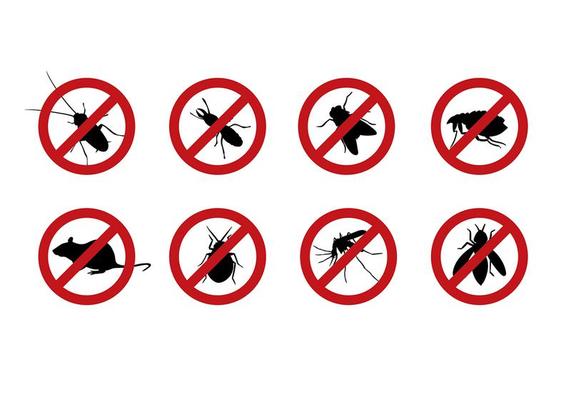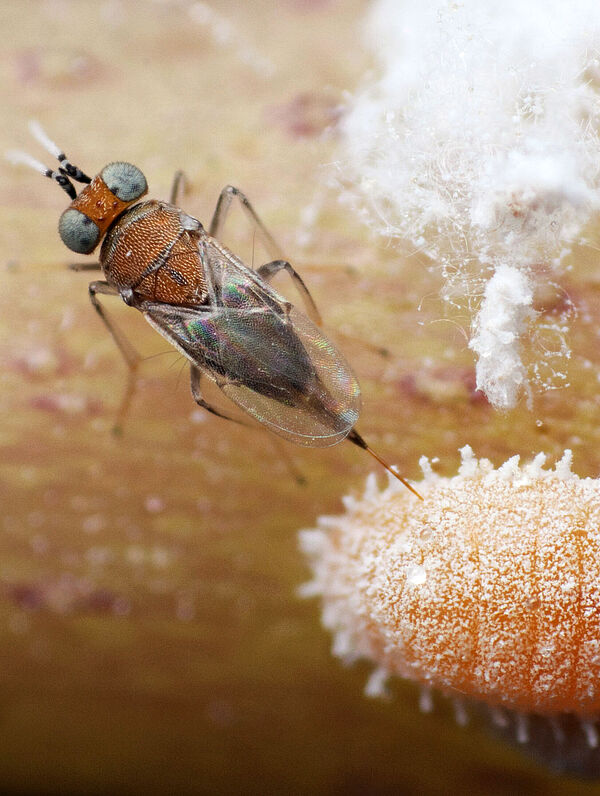Complete Pest Control Services to Protect Your Business in Port Charlotte
Discover the current Developments in Pest Control and Just How to Implement Reliable Therapy Solutions
In current years, the area of parasite control has actually observed substantial advancements, driven by the need for efficient and sustainable treatment remedies. Innovative strategies such as Integrated Pest Administration (IPM) integrate green methods with cutting-edge technology, enhancing both efficacy and ecological responsibility.
Eco-Friendly Pest Control Options
In recent times, the need for environmentally friendly insect control alternatives has surged as businesses and house owners alike look for sustainable choices to typical chemical treatments. This change is driven by expanding environmental understanding and a need to lessen the health and wellness risks connected with synthetic pesticides.

Environmentally friendly parasite control methods include a series of approaches that prioritize making use of natural materials and methods. Integrated Bug Administration (IPM) is one such method, combining biological, social, and mechanical tactics to take care of parasite populaces while decreasing reliance on chemicals (Wildlife removal services). This holistic technique highlights prevention with habitat adjustment and the introduction of all-natural predators, thereby promoting a well balanced ecosystem
An additional preferred choice is using organic pesticides originated from plants, which tend to be less unsafe to non-target microorganisms. Products like neem oil and diatomaceous planet have actually gotten traction for their efficiency in controlling bugs while posing minimal threats to human wellness and the environment.
Furthermore, exclusion methods, such as sealing entrance factors and preserving sanitation, play an essential duty in eco-friendly pest management. By adopting these sustainable methods, individuals and companies can properly handle insects while promoting a healthier planet for future generations.
Smart Modern Technology in Bug Management
Technology is reshaping the landscape of bug management, with clever innovation becoming a pivotal force in boosting performance and performance - Wildlife removal services. The integration of Internet of Things (IoT) tools, expert system (AI), and data analytics is changing just how pest control professionals approach infestations
Smart catches geared up with sensors can find insect task in real-time, sending prompt notifies to operators. This allows for prompt feedbacks, minimizing damages and lowering the demand for substantial therapies. In addition, AI algorithms analyze historic information to forecast insect actions, allowing aggressive treatments based upon ecological conditions and invasion patterns.
Drones and automatic automobiles are also playing a substantial duty in bug monitoring, providing airborne evaluations of big locations, identifying hotspots, and also distributing targeted therapies. These modern technologies not just streamline operations however likewise improve safety by limiting human exposure to potentially harmful chemicals.
Furthermore, mobile applications empower customers to keep track of insect activity and accessibility expert recommendations, cultivating a collaborative method to pest administration. On the whole, the adoption of clever modern technology is setting a new standard in bug control, stressing data-driven choices and lasting methods that inevitably benefit both professionals and property owners alike.
Integrated Insect Administration Strategies
Integrated Insect Administration (IPM) uses an alternative approach to pest control, integrating different techniques to properly manage bug populations while minimizing risks to human wellness and the atmosphere. IPM rotates around understanding the pest life process, their natural opponents, and the community in which they prosper.
Among the basic components of IPM is keeping an eye on pest populaces with routine evaluations and data collection. This enables the identification of bug thresholds, establishing when treatment is necessary. Social practices, such as plant environment, sanitation, and turning adjustment, are necessary in decreasing insect occurrence and promoting plant health.
Mechanical controls, including barriers and traps, are likewise vital in IPM. These methods can literally remove or discourage insects without making use of chemicals. When needed, the sensible application of chemical controls is used, concentrating on targeted treatments that lessen ecological impact.
Education and partnership among stakeholders, including farmers, pest control specialists, and the area, are critical for the effective execution of IPM methods. By focusing on lasting methods, IPM not just addresses pest issues yet also promotes a much healthier ecosystem.
Biological Control Methods
Many organic control methods are significantly acknowledged for their performance in managing pest populations while promoting ecological equilibrium. These strategies harness all-natural killers, bloodsuckers, and pathogens to decrease pest numbers without depending on synthetic chemicals. The intro of ladybugs can properly control aphid populations, while nematodes target soil-dwelling insect larvae.
Furthermore, making termite pest use of microbial pesticides, such as Bacillus thuringiensis (Bt), offers an eco-friendly alternative for handling caterpillar pests. These items specifically target pest types, lessening harm to useful bugs and pollinators. In addition, preservation organic control stresses improving environments for natural enemies, such as birds and valuable bugs, thus motivating their visibility in agricultural systems.
Research study proceeds to expose innovative strategies within this field, such as the use of scents to disrupt pest mating patterns or the growth of biocontrol agents with genetic modification. Carrying out these approaches can cause sustainable parasite administration practices that alleviate the reliance on chemical interventions, inevitably cultivating much healthier communities. As understanding of these techniques grows, they are becoming important parts of incorporated pest monitoring (IPM) strategies, supplying a balance in between reliable bug control and ecological stewardship.
Do It Yourself Bug Control Solutions
As home owners look for reliable means to tackle bug issues, do it yourself parasite control options have cockroach infestation acquired appeal for their availability and cost-effectiveness. These methods equip people to resolve invasions using easily available materials and strategies, typically without the demand for specialist intervention.

Additionally, maintaining correct hygiene and routine assessments can stop insect entrance and nesting (Wildlife removal services). Simple practices, such as securing fractures, removing food sources, and decluttering, can significantly reduce parasite populaces. Traps, both homemade and readily offered, can also supply efficient services for surveillance and regulating specific bugs like rats or insects

Final Thought
The integration of environmentally friendly bug control options, clever modern technology, and innovative monitoring strategies offers a thorough strategy to efficient bug administration. By welcoming Integrated Insect Administration (IPM) and using biological control techniques, along with Do it yourself remedies, liable and sustainable pest control can be achieved.
Eco-friendly bug control techniques encompass a variety of methods that prioritize the use of natural compounds and practices. Integrated Bug Administration (IPM) is one such technique, integrating biological, social, and mechanical strategies to handle pest populaces while decreasing dependence on chemicals. As recognition of these techniques expands, they are coming to be integral elements of incorporated bug administration (IPM) techniques, offering an equilibrium between reliable pest control and ecological stewardship.
The combination of green insect control alternatives, clever technology, and innovative administration approaches provides a thorough method to effective insect monitoring. By accepting Integrated Parasite Management (IPM) and making use of organic control approaches, along with DIY remedies, liable and lasting pest control can be attained.